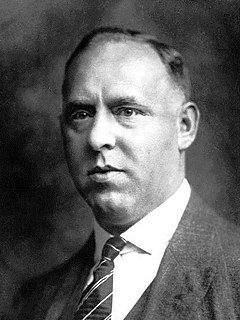 W
WThe Nazi Party, officially the National Socialist German Workers' Party (NSDAP), was a far-right political party in Germany that was active between 1920 and 1945, that created and supported the ideology of Nazism. Its precursor, the German Workers' Party, existed from 1919 to 1920. The Nazi Party emerged from the German nationalist, racist and populist Freikorps paramilitary culture, which fought against the communist uprisings in post-World War I Germany. The party was created to draw workers away from communism and into völkisch nationalism. Initially, Nazi political strategy focused on anti-big business, anti-bourgeois, and anti-capitalist rhetoric, although this was later downplayed to gain the support of business leaders, and in the 1930s the party's main focus shifted to antisemitic and anti-Marxist themes.
 W
WAnti-fascism is a political movement in opposition to fascist ideologies, groups and individuals. It began in a few European countries in the 1920s and eventually spread around the world. It was at its most significant shortly before and during World War II, where the Axis powers were opposed by many countries forming the Allies of World War II and dozens of resistance movements worldwide. Anti-fascism has been an element of movements across the political spectrum and holding many different political positions such as anarchism, communism, pacifism, republicanism, social democracy, socialism and syndicalism as well as centrist, conservative, liberal and nationalist viewpoints.
 W
WFinnlands Lebensraum is a 1941 Finnish propaganda book which was published to support the Greater Finland ideology. It was written by geographer Väinö Auer, historian Eino Jutikkala and ethnographer Kustaa Vilkuna who worked for the Finland's state propaganda and information department. National Socialist ideas were later added to the script by Yrjö von Grönhagen, a Finnish military attaché in Berlin.
 W
WGay fascism is the discredited idea that homosexuals were numerous and prominent as a group in the Nazi Party or the identification of Nazism with homosexuality more generally. It has been promoted by various individuals and groups both before and after World War II, especially by left-wing Germans during the Nazi era and the Christian right in the United States more recently. Historians regard the claim as having no merit.
 W
WThe July Putsch was a failed coup attempt against the Austrofascist regime by Austrian Nazis from 25 to 30 July 1934.
 W
WThe Kalergi Plan, or sometimes called the Coudenhove-Kalergi Conspiracy, is a far-right, anti-semitic, white nationalist conspiracy theory, which states that a plot to mix white Europeans with other races via immigration was constructed by Austrian-Japanese politician Richard von Coudenhove-Kalergi and promoted in aristocratic European social circles. The conspiracy theory is most often associated with European groups and parties, but it has also spread to North American politics.
 W
WNazi Germany, officially known as the German Reich until 1943 and Greater German Reich in 1943–45, was the German state between 1933 and 1945, when Adolf Hitler and the Nazi Party controlled the country which they transformed into a dictatorship. Under Hitler's rule, Germany quickly became a totalitarian state where nearly all aspects of life were controlled by the government. The Third Reich, meaning "Third Realm" or "Third Empire", alluded to the Nazis' conceit that Nazi Germany was the successor to the earlier Holy Roman Empire (800–1806) and German Empire (1871–1918). The Third Reich, which Hitler and the Nazis referred to as the Thousand Year Reich, ended in May 1945 after just 12 years, when the Allies defeated Germany, ending World War II in Europe.
 W
WThe relationship between the Wehrmacht and the régime it served has been the subject of a voluminous historiographical debate. Broadly speaking, there have been two camps. The myth of the clean Wehrmacht claims that the Wehrmacht had minimal participation in war crimes and genocide. More recently, scholarship has emerged demonstrating the Wehrmacht's complicity in the Holocaust.
 W
WNazi parties and other pro-Nazi organizations were formed in the Americas during the late inter-war period, in both the United States and South America. The members of these groups reflected the sympathies of some German-Americans and German Latin-Americans towards Nazi Germany, embracing the National Socialist spirit in Europe and establishing it within the Americas. Throughout the inter-war period and the outbreak of World War II, American Nazi parties engaged in activities such as sporting Nazi propaganda, storming newspapers, spreading Nazi-sympathetic materials and infiltrating other non-political organizations.
 W
WThe political views of Adolf Hitler have presented historians and biographers with some difficulty. His writings and methods were often adapted to need and circumstance, although there were some steady themes, including antisemitism, anti-communism, anti-parliamentarianism, German Lebensraum, belief in the superiority of an "Aryan race" and an extreme form of German nationalism. Hitler personally claimed he was fighting against "Jewish Marxism".
 W
WThe Seguro Obrero massacre occurred on September 5, 1938, and was the Chilean government's response to a attempted coup d'état by the National Socialist Movement of Chile (MNSCh), whose members were known at the time as Nacistas as a Spanish version of "Nazis", with some differences that justified their option for a different name. After a failed coup involving a stand-off and a shootout, about 60 Nacistas who had surrendered after being given assurances, were summarily shot. About twenty others were killed during the fighting.
 W
WStrasserism is a strand of Nazism that calls for a more radical, mass-action and worker-based form of Nazism, espousing economic antisemitism above other antisemitic forms, to achieve a national rebirth. It derives its name from Gregor and Otto Strasser, two brothers initially associated with this position.
 W
WThe Volkssport was the paramilitary wing of the German National Socialist Workers' Party (DNSAP) in Czechoslovakia between 1929 and 1932, later operating illegally.